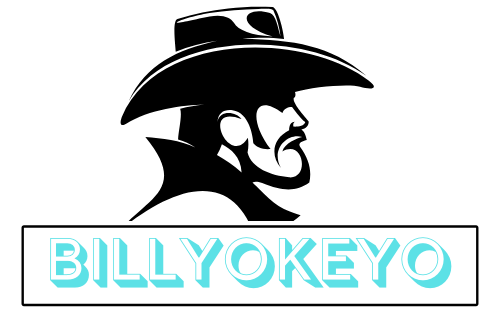Mike Wolfe has turned childhood curiosity into a cultural phenomenon. Best known as the creator and star of History Channel’s “American Pickers,” Wolfe has spent over a decade transforming forgotten barns, cluttered garages, and dusty attics into television gold. But what started as a simple passion for collecting has evolved into something much larger—a mission to preserve American history one rusty relic at a time.
The show, which premiered in 2010, follows Wolfe and his team as they travel across America searching for hidden treasures in the most unlikely places. What sets American Pickers apart from other reality shows isn’t just the thrill of discovery, but Wolfe’s genuine respect for the stories behind each item. Every motorcycle, vintage sign, and antique toy represents a piece of America’s past that might otherwise be lost forever.
Mike Wolfe’s passion project extends far beyond entertainment. Through his work, he’s created a movement that celebrates American craftsmanship, entrepreneurship, and the importance of preserving our collective memory for future generations.
Early Life and the Seeds of Collecting
Born in Joliet, Illinois, in 1964, Mike Wolfe discovered his love for “picking” at the remarkably young age of four. His first significant find was a discarded bicycle he spotted in a neighbor’s trash, which he cleaned up and sold for $5. This early success planted the seeds for what would become his life’s work.
Growing up in a single-parent household, Wolfe learned the value of resourcefulness from his mother, Rita. She encouraged his collecting habit, recognizing that it taught him important life skills like negotiation, restoration, and business acumen. By the time he was in elementary school, Wolfe was already developing an eye for valuable items that others overlooked.
His formative years were spent exploring the rural landscapes of Iowa, where his family eventually settled. The Midwest proved to be the perfect training ground for a future picker, with its abundance of family farms, old barns, and generations of accumulated items. Wolfe often speaks about how these early experiences shaped his understanding of American history and the importance of preserving artifacts from everyday life.
The influence of his grandmother also played a crucial role in developing his passion. She taught him to see beauty and value in items that others might consider junk, instilling in him a deep appreciation for craftsmanship and the stories objects carry.
The Genesis of American Pickers
The concept for American Pickers didn’t emerge overnight. For years, Wolfe had been developing the idea of a television show that would showcase the art of picking while celebrating American history. He spent considerable time pitching the concept to various networks, facing multiple rejections before finally finding a home at the History Channel.
The show’s development faced several early challenges. Network executives were initially skeptical about whether audiences would be interested in watching people rummage through other people’s belongings. Wolfe had to convince them that the real appeal lay in the human stories behind the objects and the educational value of preserving history.
When American Pickers finally premiered in January 2010, it exceeded all expectations. The show’s authentic approach to storytelling, combined with Wolfe’s genuine enthusiasm and expertise, resonated with viewers across America. The first season averaged over 3 million viewers per episode, making it one of the History Channel’s most successful original series.
The early success of American Pickers validated Wolfe’s vision that there was a significant audience for content that celebrated American heritage and craftsmanship. The show’s format, which balances entertainment with education, has influenced numerous other programs in the reality television genre.
Key Themes and Collecting Philosophy
Mike Wolfe’s approach to picking reflects a deep philosophy about preservation, craftsmanship, and American ingenuity. Rather than focusing solely on high-value antiques, Wolfe prioritizes items that tell compelling stories about American life and culture.
His particular interests include early motorcycles, vintage advertising signs, folk art, and items related to American manufacturing and transportation history. Wolfe often explains that he’s drawn to objects that represent innovation, entrepreneurship, or significant cultural moments in American history.
The show frequently features items from the early-to-mid 20th century, a period Wolfe considers crucial for understanding modern American identity. He’s particularly passionate about preserving artifacts from small-town America, believing these items represent the backbone of American culture and values.
Wolfe’s collecting philosophy emphasizes respect for the sellers and the stories behind their possessions. He approaches each pick not just as a business transaction, but as an opportunity to preserve family histories and cultural memories. This respectful approach has earned him the trust of countless collectors and families across America.
Impact on Historical Preservation
Through American Pickers, Mike Wolfe has made significant contributions to historical preservation efforts across the United States. The show has brought national attention to the importance of preserving everyday objects that might otherwise be discarded or forgotten.
Wolfe frequently works with museums, historical societies, and preservation organizations to ensure that particularly significant finds reach appropriate permanent homes. He’s helped preserve everything from rare motorcycles to vintage advertising materials that now serve as educational resources for future generations.
The show has also inspired countless viewers to take a more thoughtful approach to their own family heirlooms and vintage possessions. Many people have reported being motivated to research and preserve items in their own collections after watching American Pickers.
Wolfe’s work has contributed to a broader cultural shift in how Americans view antiques and vintage items. Rather than seeing old objects as outdated or worthless, the show has helped audiences understand their historical and cultural significance.
Business Ventures Beyond Television
Mike Wolfe’s passion project extends well beyond his television career. He operates several brick-and-mortar antique shops, including Antique Archaeology locations in LeClaire, Iowa, and Nashville, Tennessee. These shops serve as both retail outlets and museums, showcasing his personal collection alongside items available for purchase.
Wolfe has also ventured into publishing, writing books about picking, collecting, and American history. His publications provide deeper insights into his philosophy and offer practical advice for aspiring collectors and pickers.
He’s involved in various real estate preservation projects, particularly focusing on historic buildings in small American towns. Wolfe believes that preserving architectural heritage is just as important as preserving individual artifacts.
Additionally, Wolfe has launched merchandise lines and licensing deals that help spread awareness of American craftsmanship and design. These ventures allow fans to connect with the show’s message while supporting American-made products.
Addressing Controversies and Criticisms
Like many public figures, Mike Wolfe has faced his share of controversies and criticisms throughout his career. Some critics have argued that the show sometimes takes advantage of sellers who may not fully understand the value of their items.
Wolfe has consistently addressed these concerns by emphasizing his commitment to fair dealing and education. He often spends time explaining to sellers why certain items are valuable and ensures they understand the transactions they’re entering into.
There have also been changes in the show’s cast over the years, including the departure of longtime co-host Frank Fritz in 2021. While these changes generated controversy among fans, Wolfe has maintained his focus on the show’s core mission of preservation and education.
Some preservation purists have criticized the commercial aspects of the show, arguing that turning historical preservation into entertainment diminishes its importance. Wolfe counters that reaching mainstream audiences through television is one of the most effective ways to build broader support for preservation efforts.
Future Plans and Ongoing Projects
Mike Wolfe continues to expand his passion project in new directions. He’s expressed interest in developing additional television content that explores different aspects of American history and culture.
Wolfe is also working on expanding his preservation efforts through partnerships with educational institutions and museums. He’s particularly interested in creating programs that help young people develop an appreciation for history and craftsmanship.
Future plans include potential international expansion of the American Pickers concept, exploring how similar preservation efforts might work in other countries and cultures.
Wolfe has also indicated interest in developing digital platforms and educational resources that would make historical information and collecting expertise more accessible to broader audiences.
Preserving America’s Story, One Pick at a Time
Mike Wolfe’s passion project has evolved from a childhood fascination with discarded bicycles into a multifaceted mission to preserve American heritage. Through American Pickers and his various business ventures, he’s created a unique platform that entertains, educates, and inspires millions of viewers to think differently about history and preservation.
The lasting impact of Wolfe’s work extends far beyond television ratings or business success. He’s helped foster a national conversation about the importance of preserving everyday objects and the stories they tell. His respectful approach to collecting and his genuine enthusiasm for American craftsmanship have inspired a new generation of pickers, collectors, and history enthusiasts.
As America continues to evolve and modernize, the work that Mike Wolfe does becomes increasingly important. By preserving artifacts from our past, he’s ensuring that future generations will have tangible connections to the experiences, innovations, and values that shaped the American story. His passion project serves as a reminder that history isn’t just found in textbooks and museums—it’s hidden in barns, attics, and garages across America, waiting for someone with the vision and dedication to recognize its value.





